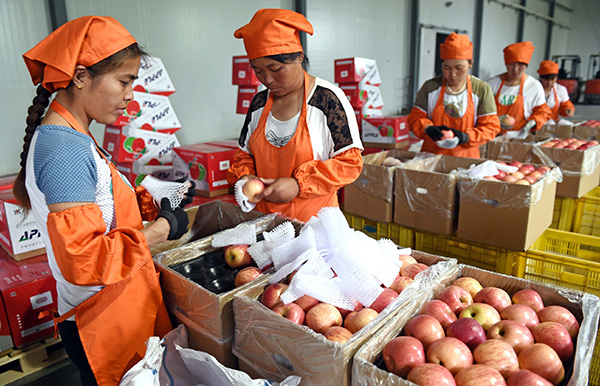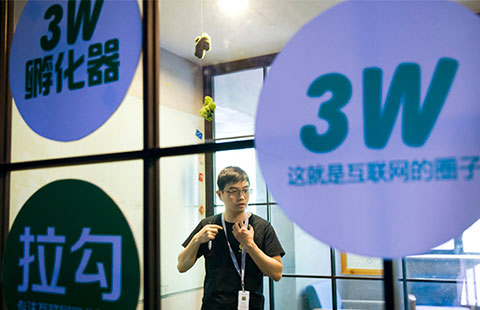Apples from mainland set to tickle US palates soon
By Zhong Nan and Zhang Xiaomin (China Daily) Updated: 2015-06-11 09:50
 |
|
Workers pack apples in Yuncheng, Shanxi province. The first batch of 12 Chinese companies from Liaoning, Shanxi and Shandong provinces have gained the necessary approval to export apples to the United States. [Photo/China Daily] |
The current opportunity came about after the US Department of Agriculture officially permitted Chinese agribusiness firms to export apples to the US market on May 26. Since then, the first batch of 12 Chinese companies from Liaoning, Shanxi and Shandong provinces have gained the necessary approval from China's General Administration of Quality Supervision, Inspection and Quarantine.
Located in Dalian of Northeast China's Liaoning province, Dalian Tianli plans to ship 41.3 metric tons of Red Fuji apples to the US markets. The shipment is expected to reach the US ports on June 26, making the reentry of Chinese apples in the US markets after 17 years. The reentry is significant as China, the world's biggest apple producer, now has market access to the world's largest economy.
Liu Baoyang, general manager of Dalian Tianli, said the apples will be packed into an 18-kilogram box, and sold for $32 a box in the US. The export profit rate is 30 percent higher than the domestic market, he said, adding that the company plans to ship 4,000 metric tons of apples next year.
After Dalian apples obtained export licenses from the European Union in 2005, Canada in 2011 and Australia in 2014, Dalian Tianli has sold 20,000 tons of apples to global markets, accounting for 60 percent of its total sales.
"The United States has the world's strictest agricultural product quality checks and quarantine standards. It has 30 articles covering diseases, pests, pesticide residue and heavy metal checks for the apples shipped from Dalian," said An Zhiguo, head of the plant quarantine department of Dalian entry-exit inspection and quarantine bureau.
China currently accounts for 33 percent of the world's annual apple output. After years of technical and experience accumulation gained from Japan, Spain and the US in planting apples such as Red Fuji, Royal Gala, Jonagold and Ralls, Dalian has become a major apple export city in China.
The agreement by China for the United States to sell all varieties of apples may increase US exports of the fruit by $100 million a year, US Agriculture Secretary Tom Vilsack said in San Francisco in January, when he announced the deal that ends about a 20-year effort by US growers to gain broader access to China.
"This reciprocal agreement also allows Chinese apple growers to sell their products to US consumers," said Liu Shizuo, chairman of the Dalian Fruit Export Association. "A full access to the Chinese market also is an important opportunity for the US apple industry to expand exports."
Liu said although China is the largest global producer of apples, domestic varieties are very limited, with Red Fuji apples accounting for around 85 percent of all production. The US apple farmers are proficient in producing more than 15 varieties of apples, which will meet Chinese consumers' demand to have more options to choose their daily fruit.
- Man turns grain crops into images of art
- China auto sales down in May for 2nd-consecutive month
- Bakery rising to the challenge
- Voices turned into hope for visually impaired
- China approves new infrastructure projects
- Diplomatic approach to social enterprise
- Price of an elite education soars in Hong Kong
- Mobilizing idle hands during a downturn

















